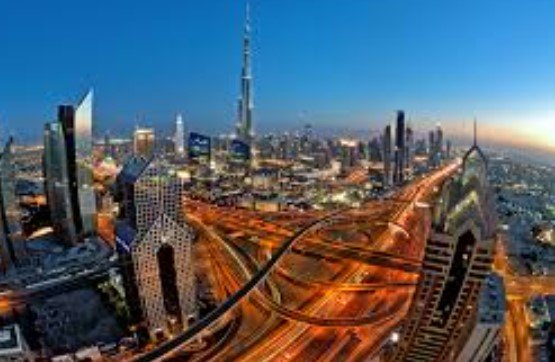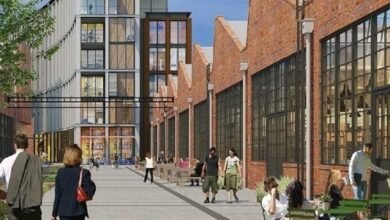Decoding Dubai’s Property Market: Strategies for Success

Dubai’s property market is a dynamic and ever-evolving landscape, presenting numerous opportunities for both seasoned investors and newcomers. With its strategic location, world-class infrastructure, and favorable economic policies, Dubai has become a hotspot for real estate investments. However, navigating this market requires a deep understanding of its unique dynamics, legal framework, and emerging trends. In this article, we will decode the intricacies of Dubai’s property market and provide you with strategies for success.
1. Introduction to Dubai’s Property Market
Dubai’s property market has grown exponentially over the past few decades, transforming from a relatively modest sector into one of the most lucrative and competitive markets globally. The city’s skyline, characterized by iconic structures like the Burj Khalifa and Palm Jumeirah, is a testament to its rapid development and ambition.
Historically, the market has seen periods of significant growth, especially during the early 2000s, driven by robust economic policies and an influx of foreign investments. However, it has also experienced downturns, particularly during the global financial crisis in 2008 and more recently due to the COVID-19 pandemic. Despite these fluctuations, Dubai’s property market remains resilient, with current conditions showing signs of recovery and stability.
Understanding these historical trends and current market conditions is crucial for any investor looking to enter the market or expand their portfolio. The demand for properties is influenced by several factors, including economic growth, population increase, and government initiatives aimed at boosting the real estate sector.
2. Key Factors Influencing Dubai’s Property Market
Several factors influence Dubai’s property market, each playing a crucial role in shaping its dynamics:
- Economic Drivers: Dubai’s economy is a significant driver of its real estate market. Sectors such as tourism, trade, and finance provide substantial economic support, leading to increased demand for both residential and commercial properties. The UAE’s Vision 2021 plan and Dubai’s Expo 2020 have also spurred growth and development in the real estate sector.
- Government Regulations and Policies: The government has implemented several policies to regulate and stabilize the market. These include property ownership laws, tax incentives, and initiatives like the Dubai 2040 Urban Master Plan, which aims to develop sustainable, people-centric urban environments. These policies attract foreign investors and ensure a balanced and regulated market environment.
- Impact of Global Events: The global financial climate significantly impacts Dubai’s property market. Events such as oil price fluctuations, geopolitical tensions, and global pandemics can affect investor confidence and market stability. Understanding these external influences is key to anticipating market changes and making informed investment decisions.
3. Types of Properties in Dubai
Dubai offers a diverse range of properties catering to different needs and investment objectives. Understanding these options is essential for choosing the right investment strategy:
- Residential Properties: These include apartments, villas, townhouses, and penthouses. Residential properties are in high demand, especially in areas like Downtown Dubai, Dubai Marina, and Palm Jumeirah, known for their luxury offerings and high rental yields.
- Commercial Properties: Offices, retail spaces, and industrial properties fall under this category. The demand for commercial properties is closely tied to economic activity and business growth in the city.
- Luxury Properties: Dubai is synonymous with luxury living, offering some of the most exclusive and high-end properties globally. These properties are typically located in prime areas and come with premium price tags but also offer higher returns on investment.
- Off-Plan Properties: These are properties that are purchased before completion, often at lower prices than completed properties. They offer significant growth potential but come with certain risks that investors should carefully consider.
Read also: Adaptive Reuse in Real Estate: Transforming Old Spaces for New Purposes
4. Popular Areas for Investment in Dubai
When considering property investment in Dubai, location is key. Some of the most popular and high-potential areas include:
- Downtown Dubai: Known as the heart of Dubai, this area is home to landmarks like the Burj Khalifa and Dubai Mall. It offers a mix of residential and commercial properties, making it a top choice for investors.
- Dubai Marina: Famous for its waterfront views and vibrant lifestyle, Dubai Marina is a preferred choice for expatriates and tourists. It offers high rental yields and a range of luxury apartments.
- Jumeirah Village Circle (JVC): JVC is an emerging neighborhood known for its affordable properties and high rental yields. It is ideal for investors looking for growth potential in a developing area.
- Emerging Neighborhoods: Areas like Dubai South, Al Furjan, and MBR City are gaining attention due to their strategic locations, ongoing developments, and future growth prospects.
5. Understanding Property Laws and Regulations in Dubai
Navigating Dubai’s property market requires a thorough understanding of its legal framework. Key considerations include:
- Foreign Ownership Rules: Foreigners can own property in designated freehold areas, which offer full ownership rights. Non-freehold areas typically have leasehold options with varying terms.
- Property Registration Process: The Dubai Land Department (DLD) oversees property registrations, ensuring legal ownership and proper documentation. The process involves several steps, including obtaining a No Objection Certificate (NOC) from the developer and paying registration fees.
- Key Legal Considerations for Investors: Investors must be aware of laws regarding property transfer, rental regulations, and dispute resolution mechanisms. Engaging a legal professional specializing in Dubai real estate is advisable to navigate these complexities effectively.
6. Financing Options for Property Buyers in Dubai
Financing is a critical aspect of property investment, especially for first-time buyers or those looking to expand their portfolio. Various financing options are available:
- Mortgage Options for Residents and Non-Residents: Both residents and non-residents can obtain mortgages in Dubai, although terms may vary. Non-residents may face higher down payment requirements and interest rates.
- Financing Through Banks and Financial Institutions: Several local and international banks offer property financing solutions. Comparing different lenders and understanding their terms is crucial for securing the best deal.
- Alternative Financing Options: Some developers offer flexible payment plans and post-handover payment schemes, which can be advantageous for buyers looking for flexible financing solutions.
7. Real Estate Agencies and Professionals in Dubai
Navigating Dubai’s property market can be complex, making the role of real estate professionals invaluable:
- Role of Real Estate Agents: Agents provide valuable market insights, property options, and assist in negotiations. Choosing a reputable and experienced agent is crucial for a successful transaction.
- Selecting the Right Real Estate Professional: Look for professionals with extensive knowledge of the market, a strong track record, and good client reviews. Transparency and communication are key qualities to consider.
- Importance of Property Management Services: For investors looking to rent out properties, engaging a property management company can help streamline operations, handle tenant relations, and maintain property conditions.
8. The Role of Technology in Dubai’s Real Estate Market
Technology is reshaping Dubai’s property market, offering new tools and solutions for buyers, sellers, and investors:
- Impact of Digital Tools and Platforms: Online property portals and apps provide easy access to listings, market data, and virtual tours, simplifying the property search process.
- Virtual Property Tours: These have become increasingly popular, allowing potential buyers to view properties remotely, saving time and resources.
- Use of AI and Data Analytics in Property Management: Advanced analytics tools help in predicting market trends, evaluating property performance, and making data-driven investment decisions.
9. Off-Plan Properties: Opportunities and Risks
Off-plan properties are a unique investment opportunity in Dubai, offering both potential rewards and risks:
- Benefits of Investing in Off-Plan Properties: These properties are typically cheaper than completed units, offer flexible payment plans, and have the potential for significant capital appreciation.
- Potential Risks and How to Mitigate Them: Risks include project delays, changes in market conditions, and developer reliability. Conducting thorough due diligence and choosing reputable developers can mitigate these risks.
- Notable Off-Plan Projects in Dubai: Projects like Emaar Beachfront, Dubai Creek Harbour, and Dubai Hills Estate are gaining attention for their strategic locations and development potential.
10. Market Trends and Forecasts
Understanding market trends and forecasts is essential for making informed investment decisions:
- Current Market Trends: Trends such as the shift towards sustainable living, increased demand for affordable housing, and growth in the luxury segment are shaping the market.
- Predictions for the Future of Dubai’s Property Market: Experts predict steady growth driven by economic recovery, government initiatives, and rising demand for high-quality properties.
- Factors That Could Impact Market Dynamics: Potential factors include changes in global economic conditions, technological advancements, and evolving consumer preferences.
11. Strategies for Successful Property Investment in Dubai
To succeed in Dubai’s property market, investors must adopt effective strategies:
- Identifying Investment Opportunities: Look for properties in high-demand areas, emerging neighborhoods, or those with unique selling points like waterfront views or proximity to key landmarks.
- Diversification Strategies: Diversifying across property types and locations can reduce risk and enhance potential returns.
- Tips for Maximizing Return on Investment (ROI): Focus on properties with high rental yields, consider renovation or upgrade opportunities, and stay informed about market trends to make timely decisions.
12. Challenges Faced by Property Investors in Dubai
Investing in Dubai’s property market is not without its challenges:
- Market Volatility: The market can be affected by global economic trends, local economic policies, and other external factors, leading to fluctuations in property values.
- Legal Challenges: Navigating the legal landscape, understanding property laws, and ensuring compliance can be complex, especially for foreign investors.
- Property Maintenance Issues: Maintaining properties to attract tenants or buyers requires ongoing investment and management, which can be challenging for remote investors.
13. Renting vs. Buying: A Comparative Analysis
Deciding whether to rent or buy is a critical decision for potential investors and residents:
- Pros and Cons of Renting Versus Buying: Renting offers flexibility and lower upfront costs, while buying can provide long-term financial benefits and stability.
- Market Scenarios Favoring Each Option: Understanding market conditions, economic forecasts, and personal financial situations can help determine the best approach.
- Cost Comparison Analysis: Analyzing the cost of renting versus buying over time, considering factors like mortgage rates, property appreciation, and rental yields.
14. Tips for First-Time Property Buyers in Dubai
For first-time buyers, understanding the market and making informed decisions is crucial:
- Key Considerations Before Buying: Understand the market, define your investment goals, and assess your financial situation.
- Step-by-Step Guide to the Buying Process: From property search to closing the deal, understanding each step helps in navigating the buying process smoothly.
- Common Mistakes to Avoid: Avoid over-leveraging, ignoring market research, and underestimating additional costs associated with property ownership.
15. Conclusion and Future Outlook
In conclusion, Dubai’s property market offers vast opportunities for those willing to understand its dynamics and invest strategically. With the right knowledge, preparation, and guidance, investors can navigate this complex market and achieve success. The future outlook remains optimistic, with Dubai continuing to attract global interest due to its economic resilience, strategic location, and proactive governance.
FAQs
- What is the current state of Dubai’s property market?
- Dubai’s property market is showing signs of recovery and stability, with increased demand in certain areas and a growing interest in off-plan properties.
- Can foreigners buy property in Dubai?
- Yes, foreigners can buy property in designated freehold areas in Dubai, where they have full ownership rights.
- What are the risks of investing in off-plan properties in Dubai?
- Risks include project delays, market fluctuations, and developer reliability. Conducting thorough due diligence and choosing reputable developers can mitigate these risks.
- Is it better to rent or buy a property in Dubai?
- It depends on individual circumstances, market conditions, and financial goals. Renting offers flexibility, while buying provides long-term stability and potential appreciation.
- What financing options are available for non-residents?
- Non-residents can obtain mortgages from local and international banks, though they may face higher down payment requirements and interest rates.
- How can I maximize my ROI in Dubai’s property market?
- Focus on properties in high-demand areas, diversify your portfolio, and stay informed about market trends to make timely investment decisions.






